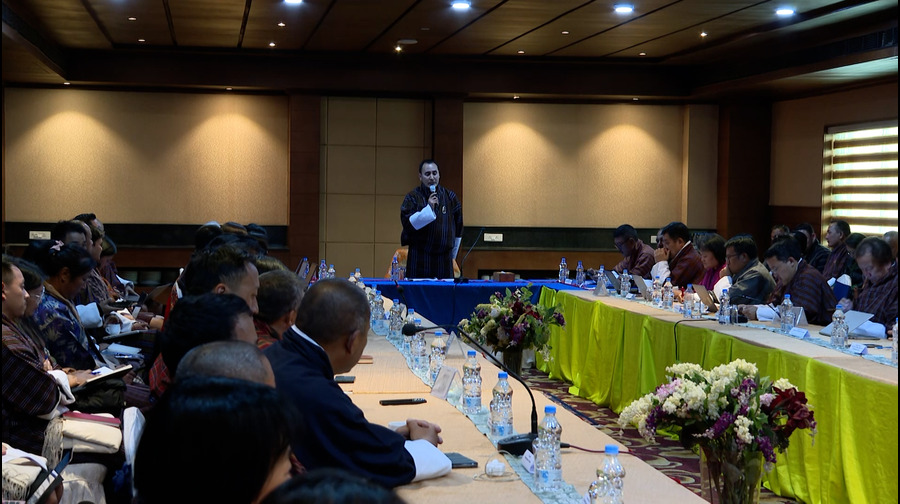
Bhutan’s private sector is making it easier and conducive for people to establish and run businesses in the country. This is in line with the country’s goal of becoming a high-income economy by 2034. In Phase I of this initiative, 235 regulatory challenges were identified, and more than half of them have been resolved. Phase II has now begun to identify further areas for improvement.
Business Regulatory Review Report involving key stakeholders from the private sector and relevant government agencies were presented today.
Following the government’s executive order issued in January last year, the private sector, assessed by the Ministry of Industry, Commerce and Employment, began reviewing existing business regulatory processes and identifying barriers, after which it proposed actionable recommendations in collaboration with relevant stakeholders.
235 issues related to Bhutan’s business regulatory processes were identified last year. Of which, 118 were fully resolved, 59 taken up by agencies, and 26 issues identified for intervention among others. The ministry and the Cabinet Secretariat carried out a comprehensive review of these regulatory issues.
Tandy Wangchuk, the President of the Bhutan Chamber of Commerce and Industry said, “It will improve ease of doing business and promote simplification. In Bhutan, whatever we do tends to be over-regulated, so under the initiative of the present government, I believe this will ease the burden and enable many more people to do business in the near future.”
Likewise, Phase II began today, with the private sector looking forward to further simplifying regulatory processes.
The President added that “The OCASC, the Office of the Cabinet Affairs and Strategic Coordination has come up with 955 issues related to the economy. Of course, this will take longer time, with 210 also, we took almost one year. But we will pursue seriously, and OCASC and the cabinet, they are very much supportive, and we are quite sure that in a few months, we’ll be able to resolve from 955. At least we can bring down 50 per cent.”
Further interventions are expected, including changes to existing legislation and standards, improved implementation of laws, amendments to current regulations, and adoption of new legislation to better support the private sector.
Kinzang Lhadon
Edited by Kipchu






